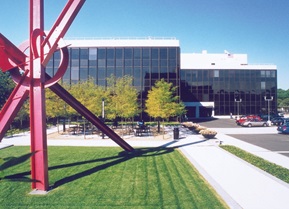

When the Connecticut General Assembly got around to the business of court reform late last month, it focused on the courts at the highest and lowest ends of the spectrum, ensuring seven justices would hear cases at the state Supreme Court while overhauling the probate system.
Left untouched was the state”™s complex litigation docket, under which lawyers go toe-to-toe in the most complicated cases in Connecticut.
In a series of Connecticut judiciary panels on the Connecticut court system in 2007 and 2008, some attorneys complained that the complex litigation docket had failed to live up to its original promise of the efficient resolution of difficult disputes.
Â
Local attorneys, however, say that despite some limitations ”“ including a policy of rotating judges through the docket, denying the court a bench with years of experience ”“ the complex litigation has proven itself over and over.
Â
Thomas Goldberg, an attorney in the Stamford office of Day Pitney L.L.P., said the overall court system has made great strides the past few years by adding the ability to look up cases online. However, he does not expect the state to allow documents to be downloaded online, which federal courts have successfully implemented and which would make attorneys”™ jobs easier, yet.
The complex litigation docket debuted in June 1998 under the leadership of Judge Aaron Ment, with the charge of hearing complex business cases, those involving multiple litigants or cases that could result in millions of dollars in damages.
It is Connecticut”™s answer to the Delaware Court of Chancery, established in 1792 to hear cases involving equity in that state, and since evolving to handle a broad range of cases involving corporate, financial and real estate disputes.
Of nearly 180 judges in the state Superior Court, nine judges hear complex litigation docket cases in Hartford, Waterbury and Stamford, including Judge John Blawie and Judge Alfred Jennings Jr. in Stamford.
Blawie”™s name was recently splashed across headlines nationally after Greenwich-based Pursuit Partners L.L.C. sued UBS AG over investment instruments it purchased near the height of the subprime mortgage debacle.
Â
Nearly half the states today have complex litigation dockets focused on business issues, according to the National Center for State Courts, including New York, New Jersey and Massachusetts.
Â
Unlike a similar business court in Boston started at about the same time period, Connecticut rotates judges through the complex litigation docket on three-year assignments. On one hand, that gives judges expertise to bring back to their regular court sessions; on the down side, it denies Connecticut a seasoned core of judges with long experience in the thorniest business cases.
It is not an easy charge ”“ the Federal Judicial Center”™s manual for handling complex cases spans more than 800 pages, focusing much of its attention on exercising early control of cases by working with attorneys and comprehensively planning pretrial and trial proceedings.
Still, given the extreme caseload handled by Connecticut”™s superior courts each year, the complex litigation docket frees up other judges to keep other cases moving through the system without getting bogged down in fine-print proceedings litigated by deep-pocketed corporations.
“Over the past two fiscal years, more than one million cases were filed in our Superior Courts (and) during the same time period, our courts disposed of almost the same amount,” said Chief Justice Chase Rogers, in a May address on the state of the Connecticut courts. “That”™s a lot of business for a court system of approximately 200 full-time judges to handle. It is, in fact, one of the highest ratios of cases per judge in the states with a unified court system.”















